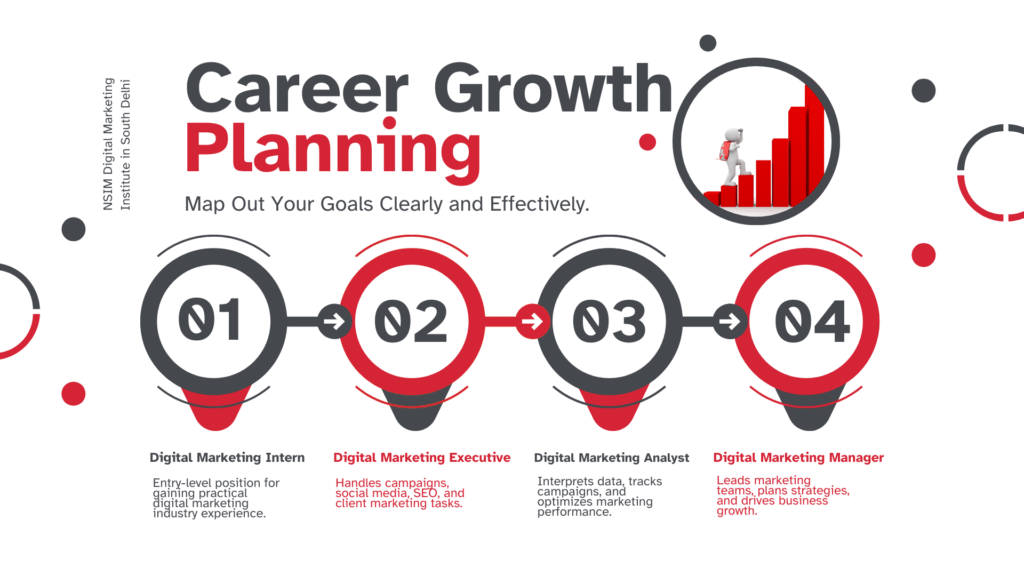Introduction To How Global Politics Impacts Digital Marketing Trends In India
Introduction to How Global Politics Impacts Digital Marketing Trends In India
Global politics influences every business sector, including digital marketing. In India, where technology adoption is rapid, political shifts shape how marketers strategize, advertise, and connect with audiences. The relationship between global policies and digital marketing is more visible today than ever before.
Understanding Global Politics Impacts Digital Marketing Trends In India is essential for marketers who want to stay competitive in a constantly changing environment. International trade agreements, data privacy laws, and geopolitical relations all play a major role in shaping marketing strategies across industries.
As Global Politics Impacts Digital Marketing Trends In India, brands must adapt quickly to new global realities. Businesses that stay informed about these political and economic shifts can create stronger, more effective marketing campaigns that align with both national and international trends.
For those looking to master these evolving strategies, enrolling in a Top Digital Marketing Course in Delhi can help develop the expertise needed to understand Global Politics Impacts Digital Marketing Trends In India and how these changes redefine the future of online marketing.
The Connection Between Global Politics and Marketing : Global Politics Impacts Digital Marketing Trends In India
Global politics affects economic stability, trade relations, and digital laws. These elements directly influence marketing trends in India. When political relationships between nations change, they impact import-export rules, data privacy regulations, and foreign investment policies. Marketers must adapt to these evolving scenarios to maintain competitiveness.
Impact of International Trade Policies on Advertising
Trade policies define how brands source products and advertise globally. If tariffs rise between major economies, the cost of imported digital tools increases. Indian marketers often rely on foreign platforms such as Google Ads or Meta Ads. Political conflicts can disrupt these platforms or increase their costs, forcing brands to seek local alternatives.
Additionally, trade restrictions can change brand partnerships. Marketers must pivot campaigns to align with available resources and changing consumer expectations.
Data Privacy and International Regulations
Global data protection laws such as GDPR influence how Indian companies collect and use customer data. India’s own Digital Personal Data Protection Act is modeled after international standards. Global politics around data sharing and surveillance have made consumers more aware of privacy concerns.
Marketers in India now emphasize transparency and consent-based strategies. Brands use secure data collection methods to maintain trust. Privacy-focused marketing tools and automation systems have become key to modern campaigns.
The Role of Global Conflicts and Sanctions
Political conflicts and sanctions can alter marketing channels and advertising budgets. When nations impose sanctions, international ad platforms may restrict access. This affects cross-border campaigns and influencer collaborations.
For example, global conflicts can slow digital trade or increase internet censorship. Indian marketers must adjust strategies, choosing local or regional platforms when global ones are limited. Awareness campaigns about national resilience and self-reliance often gain popularity during such times.
Global Economic Conditions and Consumer Behavior
Political instability often leads to inflation, affecting how consumers spend. In India, when global oil prices rise due to political conflicts, marketing budgets shrink. Brands focus more on value-based marketing and affordable offers.
Economic uncertainty also pushes marketers toward digital innovation. AI-driven campaigns, influencer marketing, and content automation help brands stay visible even with limited budgets. Indian consumers, increasingly online, seek affordable yet quality-driven options, making digital marketing crucial.
Influence of International Relations on Brand Image
Brands are now judged by their political neutrality and ethical values. International relations affect public sentiment toward foreign brands operating in India. For instance, when geopolitical tensions rise, consumers prefer local products over imported ones.
Marketers must carefully craft messages that reflect social harmony and cultural respect. A politically insensitive campaign can lead to severe backlash and loss of trust. Cultural awareness and neutrality have become key pillars in Indian digital marketing.
The Rise of Local Platforms Due to Global Politics
As global tensions increase, India has promoted local digital ecosystems. The “Digital India” initiative encourages self-reliant platforms. Apps like Koo and ShareChat have grown due to restrictions on certain global apps.
This shift opens new opportunities for marketers. Advertising on Indian platforms ensures compliance with national data laws and appeals to patriotic audiences. Global politics indirectly boosts domestic innovation and advertising diversity.
Foreign Investments and the Indian Digital Market
Foreign direct investments (FDI) are influenced by political stability. When India maintains strong international relations, global investors pour funds into tech startups and marketing firms. This leads to better tools, higher ad quality, and advanced analytics.
However, when political uncertainty arises, investors pull back. Digital agencies must then rely on local funding and partnerships. Maintaining political awareness helps marketers prepare for financial fluctuations.
Impact of Political Narratives on Brand Messaging
Political narratives shape consumer emotions and values. Global issues such as climate change, equality, and sustainability dominate discussions. Indian brands are adopting socially responsible messaging aligned with these global themes.
Campaigns focusing on environmental awareness or inclusivity gain more traction. Marketers must stay updated with political movements to connect emotionally with modern consumers. Aligning with ethical causes strengthens a brand’s global image.
Technology Regulations and Digital Advertising Evolution
Technology laws differ across countries. When nations tighten control over data transfer, Indian marketers must adjust their strategies. Cloud storage, cookies, and AI tools are all subject to international politics.
Recent debates about AI ethics have also affected ad creation. Indian agencies are exploring indigenous AI tools to reduce dependency on foreign platforms. Political discussions around technology sovereignty are redefining how digital advertising operates.
Social Media and Political Influence
Global political events often dominate social media trends. Hashtags, movements, and protests influence what users engage with. Marketers must respond swiftly to these changing moods.
For instance, global humanitarian issues can inspire cause-based marketing in India. Brands show empathy by aligning with global campaigns for peace or equality. Political sensitivity on social media ensures brand relevance and audience loyalty
Digital Marketing During Political Elections
Political elections worldwide affect ad spending and online sentiment. During global elections, social media platforms tighten ad rules to prevent misinformation. Indian marketers must follow these guidelines carefully.
Elections in powerful countries also shift global economic outlooks. This indirectly affects India’s marketing budget allocations and consumer confidence. Digital marketers closely monitor election outcomes to predict audience behavior.
Cultural Diplomacy and Cross-Border Marketing
When global relations improve, cultural exchange increases. Indian brands collaborate with international influencers and creators. These partnerships expand brand visibility and trust.
However, strained diplomatic ties can disrupt collaborations. Marketers must evaluate risks before launching cross-border campaigns. Global peace and cooperation foster creativity and shared marketing success.
Artificial Intelligence and Political Power
AI technology is becoming central to global politics. Nations compete for AI dominance, influencing which tools are accessible worldwide. Indian marketers depend on AI-powered analytics and automation.
If political tensions restrict AI trade, digital strategies must evolve locally. India’s growing tech sector is building independent AI platforms to ensure marketing continuity. The push for digital sovereignty is both political and strategic.
The Future of Digital Marketing Amid Political Uncertainty
Global politics will continue to shape marketing in India. Political changes bring new challenges but also innovation opportunities. Brands that stay adaptable and aware will thrive.
The key lies in balancing global awareness with local authenticity. As India’s digital economy grows, marketers must combine technology, ethics, and political understanding to build lasting impact.
🧩 1. Real-World Examples OF Global Politics impact Digital Marketing Trends In India
Real-World Examples of Political Influence on Indian Marketing: Global Politics Impacts Digital Marketing Trends In India
Global politics doesn’t just affect governments; it reshapes business environments.
For example, the Russia–Ukraine conflict disrupted global oil prices, leading to increased inflation in India. As a result, brands cut down on marketing budgets and shifted focus toward organic digital growth instead of paid ads.
Another instance is the U.S.–China tech rivalry, which limited access to certain AI-driven marketing tools. Indian marketers had to adapt by using local software alternatives and strengthening partnerships with Indian tech providers.
Similarly, after the Cambridge Analytica scandal in 2018, people worldwide became more conscious of data usage. This led Indian marketers to adopt privacy-first strategies, emphasizing consent-based advertising and data protection.
📊 2. Statistics and Data
Data-Driven Impact of Global Politics on Digital Marketing
Statistics clearly show how global political conditions shape marketing behavior.
According to Statista, India’s digital ad spending grew by 28% in 2024, despite major international disruptions. This indicates the resilience of Indian marketers even in volatile conditions.
A HubSpot global marketing survey (2023) revealed that 70% of marketing professionals now consider global politics a major factor in campaign planning. Rising inflation, new import taxes, and privacy laws force marketers to budget strategically.
Additionally, PwC India reported that the cost of global digital tools like Google Ads and Meta Ads increased by 10–15% during political trade tensions in 2023. This pushed Indian agencies to look for cheaper local alternatives or open-source tools.
🌍 3. Major Global Political Events Influencing Indian Marketing
Timeline of Global Events That Shaped India’s Digital Marketing
Understanding key global political moments helps marketers analyze patterns and prepare for the future:
- 2018: The Cambridge Analytica data scandal exposed privacy risks, pushing India toward stronger data laws.
- 2020: The U.S.–China trade war led to higher import taxes on tech equipment and digital products.
- 2020–21: The COVID-19 pandemic and global lockdowns accelerated India’s digital transformation.
- 2022: The Russia–Ukraine war caused global inflation and reduced advertising budgets.
- 2023–24: India implemented its Digital Personal Data Protection Act, aligning with international data privacy standards.
These events reshaped not only marketing budgets but also how brands approach global communication and technology dependence.
💻 4. Digital Diplomacy and Marketing Collaboration
How Digital Diplomacy Shapes International Marketing Partnerships
Global diplomacy now extends to the digital world. Countries collaborate through online campaigns that promote cultural understanding and trade.
India’s government uses digital diplomacy in campaigns like “Incredible India” and “Make in India” to strengthen global relations. Such initiatives encourage foreign investors and digital marketers to see India as a growth hub.
Furthermore, cross-border brand collaborations rely on stable diplomatic relations. For instance, Indian fashion brands partner with European influencers, while Indian tech firms collaborate with American software companies. These partnerships build trust and expand audience reach.
Digital diplomacy not only benefits governments but also gives marketers new storytelling opportunities.
🧠 5. AI and Technology Regulation
AI, Politics, and the Future of Indian Marketing :Global Politics Impacts Digital Marketing Trends In India
Artificial Intelligence has become a political and strategic weapon worldwide. Nations are competing to dominate the AI landscape.
For Indian marketers, AI tools like ChatGPT, Jasper, and Midjourney revolutionized content creation. However, global politics around AI regulations affect access to these tools. If foreign AI systems face bans or restrictions, marketers must rely on indigenous AI solutions.
India’s push for “Digital Sovereignty” aims to build homegrown AI tools that are ethical and privacy-compliant. Marketers benefit from these local technologies, ensuring data safety and cost efficiency.
Global debates around AI bias and political influence also affect how algorithms display ads. Therefore, brands must ensure their campaigns are politically neutral and ethically sound.
📱 6. Political Influencer Marketing :Global Politics Impacts Digital Marketing Trends In India
The Rise of Political Influencer Marketing
Social media has given rise to a new wave of political influencers who shape opinions online. These individuals discuss global events, foreign policies, and economic changes, influencing public perception.
Brands in India must navigate this space carefully. Associating with politically biased influencers can damage brand image. Instead, many companies now prefer neutral, value-driven influencers who focus on social causes, sustainability, and innovation.
Election seasons also affect ad spending. During global or national elections, platforms like Facebook and YouTube tighten political ad regulations. This increases ad competition and changes keyword pricing. Smart marketers plan their campaigns early to avoid high costs during election months.
📦 7.Challenges and Opportunities
Challenges and Opportunities for Indian Digital Marketers
Global politics creates both barriers and breakthroughs for digital marketers.
Challenges:
- Trade restrictions increase software and advertising tool costs.
- Geopolitical conflicts disrupt global supply chains and data access.
- Privacy laws require compliance, raising operational costs.
Opportunities:
- Local tech startups are developing competitive ad platforms.
- Consumers support patriotic and ethical brands more than ever.
- India’s growing IT infrastructure offers marketers new possibilities.
By balancing both challenges and opportunities, Indian marketers can future-proof their strategies and thrive globally.
🚀 8.Expert Insights and Future Predictions
Expert Insights: The Future of Digital Marketing Amid Global Politics
Experts predict that the relationship between global politics and marketing will intensify. The next phase of digital evolution will depend on how nations handle technology ownership and data regulation.
1. AI-Driven National Campaigns: Governments may use AI to enhance public relations and citizen engagement.
2. Metaverse Diplomacy: Countries might use virtual worlds to promote culture, tourism, and trade.
3. Cross-Border Influencer Networks: Brands will increasingly collaborate with influencers across politically friendly nations.
In the future, marketers must combine political awareness, data ethics, and technological adaptability to stay relevant. Those who understand global dynamics will build stronger, more authentic connections with audiences worldwide.
🧭 9. Conclusion To Global Politics Impacts Digital Marketing In India
Conclusion
Global politics continues to shape India’s digital marketing landscape. Every global decision—from trade agreements to sanctions—affects how marketers strategize and communicate.
Brands that understand these connections can plan smarter, respond faster, and connect deeper with audiences. India’s growing influence in the global economy offers marketers the chance to lead with innovation and responsibility.
In the coming years, success in digital marketing will not depend only on creativity or technology—it will depend on political awareness and adaptability.
The brands that stay ethical, informed, and agile will define the next era of Indian marketing.




